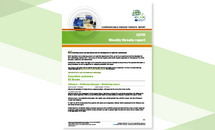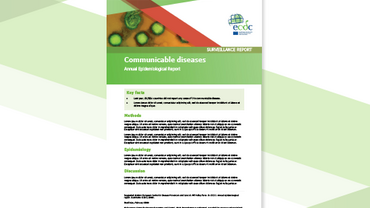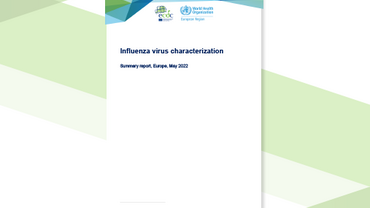Communicable disease threats, 29 July - 4 August 2012, week 31
The ECDC communicable disease threats report is a weekly bulletin intended for epidemiologists and health professionals in the area of communicable disease prevention and control. Summarising information gathered by ECDC through its epidemic intelligence activities regarding communicable disease threats of concern to the European Union, it also provides updates on the global situation and changes in the epidemiology of communicable diseases with potential to affect Europe, including diseases that are the focus of eradication efforts.
Executive summary
On 24 July 2012, the Ministry of Health of Uganda notified WHO of an outbreak of Ebola haemorrhagic fever from Kibaale district, mid-western Uganda. As of 31 July 2012, 38 cases, including 16 deaths, have been reported. Laboratory investigations conducted at the Uganda Virus Research Institute (UVRI), Entebbe, Uganda, confirmed Ebola virus, subtype Sudan. The risk for EU citizens living in or visiting Kampala is extremely low, unless they would be directly exposed to body fluids of dead or living infected persons or animals, according to a risk assessmentprepared by ECDC.
In week 31, no new cases were reported in an outbreak of SalmonellaStanley in Belgium, Germany and Hungary. Outbreak investigations are on-going in all three countries and pulsed field gel electrophoresis (PFGE) profiling that found indistinguishable profiles in the strains suggests a common source which has not yet been identified. ECDC has published a risk assessment which concludes that according to the available information further cases might occur but the impact for public health at the EU level is considered to be limited.
During the 2012 transmission season of the West Nile fever virus in Europe, Greece has reported 31 autochthonous cases (16 confirmed, 15 probable). Likewise, Italy notified one probable case to ECDC on the previous week. This case could not be confirmed by the national reference laboratory and was therefore considered as a false positive. It has now been discarded. West Nile fever in humans is a notifiable disease in the EU. The implementation of control measures by the national health authorities are considered important – to ensure blood safety when human cases of West Nile fever occur.
As of 20 July 2012, ECDC has enhanced its surveillance activities for the London 2012 Olympic and Paralympic Games.
Download







